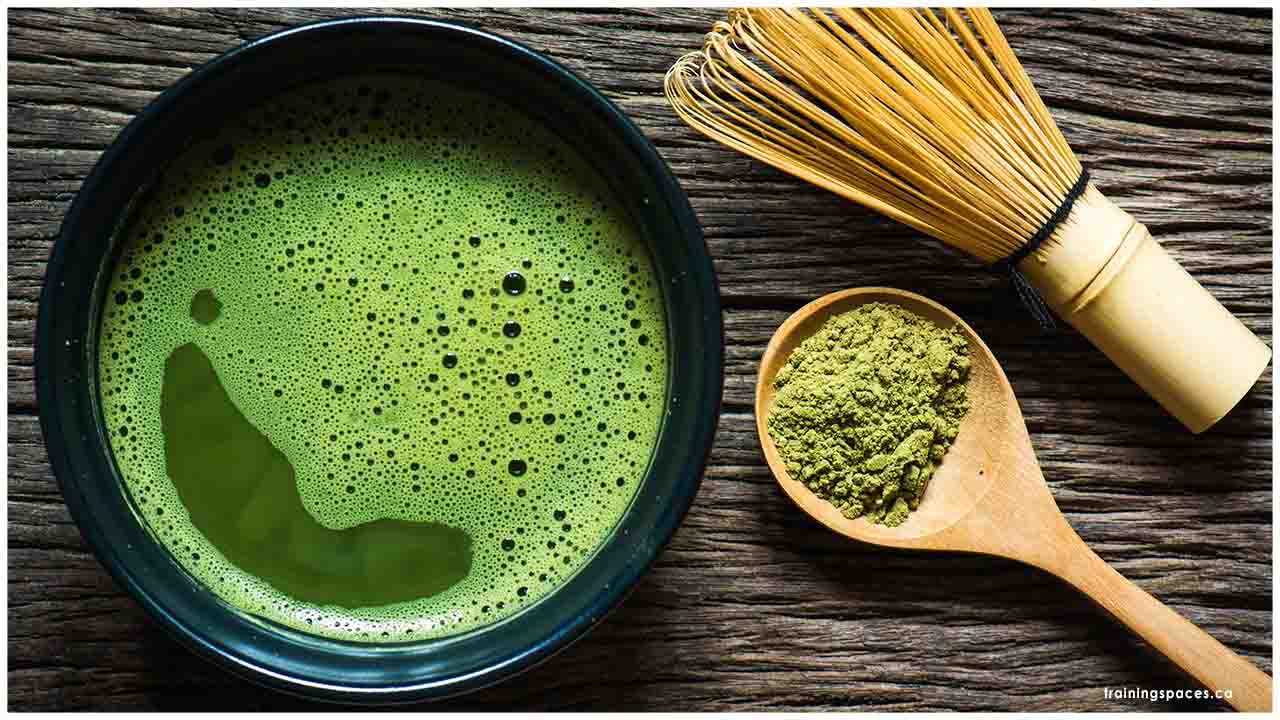Matcha is a type of green tea made by taking the new and young tea leaves and grinding them into a bright green powder. The powder is then whisked with hot water which is different from regular green tea, where the leaves are infused in water and then removed before consumption.
Matcha is high in a catechin called EGCG (epigallocatechin gallate), which is accepted to have cancer battling properties in the body. Studies have connected green tea to an assortment of medical advantages, such as assisting with forestalling coronary illness, type 2 diabetes and malignant growth, and in any event, helping with weight reduction.
The most perceptible flavor notes to consider for matcha is how smooth the balance of flavors feels in the mouth. In the highest-caliber matcha brands, you'll notice vegetal notes, a charming, yet not astringent sharpness, nuttiness, and smooth pleasantness.
Things you didn’t know about Matcha
Matcha is an extraordinary type of green tea
Matcha is a real sense signifies "powdered tea." When you request customary green tea, segments from the leaves get injected into the high-temperature water; at that point, the leaves are disposed of. With matcha, you're drinking the genuine leaves, which have been finely powdered and made customarily by blending about a teaspoon of matcha powder with a third cup of high temp water (warmed and not boiled), which is then mixed with a bamboo brush until it froths.
In contrast to conventional green tea, matcha preparation includes covering the tea plants with concealing fabrics before they're collected. This triggers the development of leaves with better flavor and surface. The leaves are hand chosen, steamed quickly to stop aging, at that point dried and matured in chilly stockpiling, which develops the flavor. The dried leaves are then stone-ground into a fine powder.
Matcha offers medical advantages
Since matcha is produced using top-notch tea, and the entire leaves are ingested, it's a stronger wellspring of supplements than green tea. Giving modest quantities of nutrients and minerals, matcha is wealthy in antioxidants called polyphenols, which have been attached to insurance against coronary illness and malignant growth, just as better glucose management, decrease in blood pressure, and anti-aging. Another polyphenol in matcha called EGCG has been appeared in exploration to support digestion, and slow or end the development of malignancy cells.
It contains caffeine
Since you're devouring entire leaves in matcha, you may get threefold the amount of caffeine than some tea, about the sum in some fermented espresso. Matcha fans state that contrasted with the caffeine buzz from espresso, matcha makes a "ready quiet" because of a characteristic substance it contains called l-theanine, which incites unwinding without tiredness. All things considered, it's ideal to nix all types of caffeine (counting matcha) in any event six hours before sleep time, to guarantee a decent night's rest.
It generally includes meditation
The preparation of matcha is the focal point of Japanese tea functions, and it has for quite some time been related to Zen. This is likely one explanation it's getting so well known, as meditation is turning out to be increasingly more standard. Its advantages will stretch out a long way past the antioxidants it gives—since meditation, in any structure, has plenty of rewards. It's been appeared to decrease cortisol (a pressure hormone known to drive hunger and increase tummy fat), lower irritation (a known trigger of untimely maturing and sickness), check impulsive eating, lower pulse, and lift confidence and sympathy.
The powders might be improved, and the quality changes
The taste of matcha is strong. A few people depict it as grass or spinach-like, and it has an umami taste. Along these lines, it could be improved to improve its satisfactoriness. Tea specialists additionally caution that with matcha, quality is vital, and it includes some significant pitfalls. As such, high caliber, new, unadulterated matcha is costly. A low sticker price can be a warning for a low-quality item.
Lead contamination is a worry
Indeed, even naturally developed green teas have been appeared to contain lead, which is consumed by the plant from the climate, especially tea filled in China. At the point when customary green tea is soaked, about 90% of the lead remains in the leaf, which is disposed of. With matcha, since the entire leaf is devoured, you will ingest more lead. Hence, drinking close to one cup a day and not serving it to kids is advised.
Matcha can be fused into suppers
Matcha is in trend with culinary specialists, as a refreshment, however as a fixing in both sweet and appetizing dishes. In the event that you search on Google for matcha recipes, you'll discover everything from matcha biscuits, brownies, and puddings, to matcha soup, and even matcha guacamole.
So enjoy your love for Matcha but in moderation as an overdose of superfoods that is otherwise good might be of problem. So search for unadulterated, natural, quality matcha, and appreciate it with some restraint.

 Even naturally developed green teas have been appeared to contain lead. Hence, drinking close to one cup a day and not serving it to kids is advised.
Even naturally developed green teas have been appeared to contain lead. Hence, drinking close to one cup a day and not serving it to kids is advised.




.jpeg)

.jpeg)
.jpeg)
.jpeg)
.jpeg)
.jpeg)
.jpeg)
.jpeg)






.jpeg)



.jpeg)
.jpeg)







.jpg)

